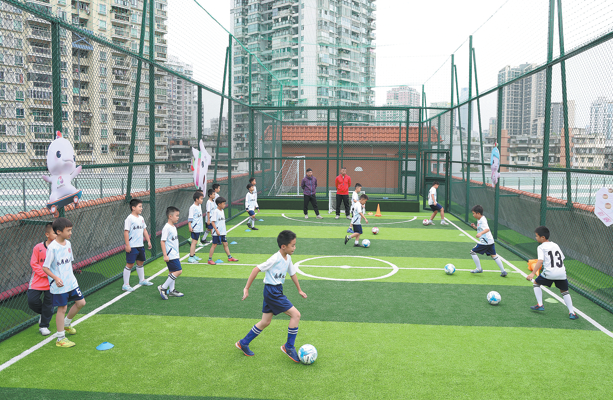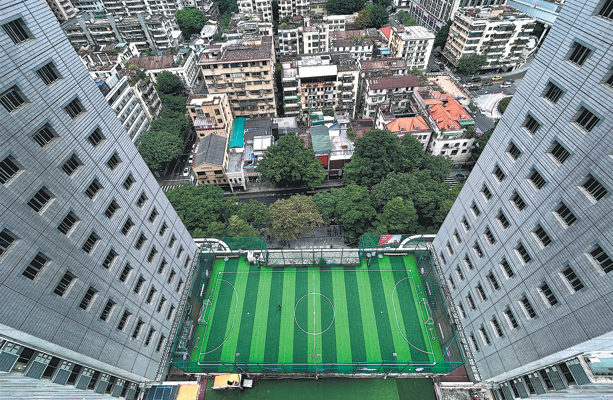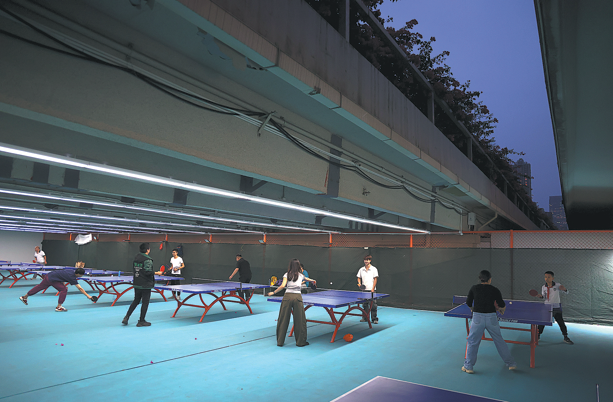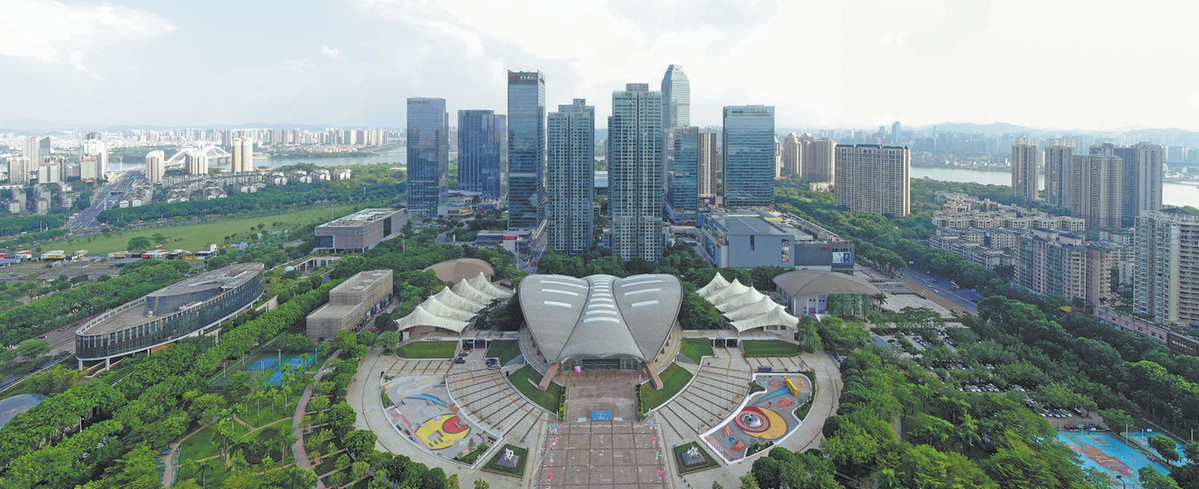
Building on a transformative shift that began at the 13th National Games in Tianjin in 2017 — when mass-participation events were first introduced — the ongoing 15th National Games, being hosted in the Guangdong-Hong Kong-Macao Greater Bay Area, have evolved from an elite-only arena into a truly national sports festival.
This year's edition deepens that legacy. The country's largest-ever premier multisport event to date, it integrates 34 elite competitions with 23 mass-participation events that drew a million grassroots competitors, powerfully translating the slogan of "fitness for all "into widespread action.
The public program features 19 competitive mass-participation sports, such as dragon boating, Go, Chinese chess, Chinese wrestling, shuttlecock, table tennis, badminton, tennis, soccer, basketball and orienteering, along with four demonstration sports: qigong, tai chi, dragon and lion dancing and broadcast gymnastics.
This diverse range of activities enables individuals of all ages and backgrounds to find a sport that suits them. Notably, the majority of these mass-participation events were concluded before the Games' opening ceremony on Sunday.
Cheung Yiu-chiu, 81, who represented Hong Kong in the mass table tennis event at Tianhe Sports Center in Guangzhou back in August, is the oldest competitor at this edition of the Games.

He only began playing table tennis at the age of 66, practicing on the table in his residential community after he retired. He went on to specialize in the chop shot and later won multiple amateur tournaments.
Reflecting on his Games experience, he said: "It felt like competing in the Olympics. The atmosphere was electric. Even the athlete entrance ceremony was just like what we see in major tournaments on TV."
"Although our skill level may not be top tier, we still gave our all to bring honor to Hong Kong," he added.
"The fact that the country places such emphasis on national fitness, even offering a competition slot to someone my age, has been a tremendous encouragement to me," said Cheung.
Burenjirgal claimed the men's 65kg gold medal in Chinese wrestling. Hailing from the Xilin Gol Grasslands in North China's Inner Mongolia autonomous region, he manages a herd of 200 sheep, 50 cattle and 50 horses.
As a boy, he would grapple with his friends by the Xilin River, and the loser's penalty was to catch a fish — often coming up empty-handed, but filled with laughter. For Mongolians like him, wrestling is more than just a sport, it's a symbol of their ethnic culture. It embodies the Mongolian spirit of bravery, unity and reverence for tradition.
In anticipation of the Games, Burenjirgal started his preparation four months in advance, focusing on weight loss and honing fundamental skills such as footwork, takedowns, defense and counterattacks.

His efforts were rewarded on July 24 in Qingyuan, where he competed in the final and emerged champion. The trip also offered him, quite literally, his first taste of Guangdong province, where he finally sampled the local delicacies he had long wanted to try, including double-layer milk pudding and char siu — flavors he found strikingly different from the grassland cuisine of his hometown.
He plans to return to the Greater Bay Area during the official competition period to further immerse himself in the region's cultural and culinary offerings.
One of the Games' most anticipated events, the men's individual cycling road race, concluded on Saturday. The riders covered a 231.8-kilometer course, crossing the customs points six times without interruption — making it the first cross-boundary race in the Games' history and the only event linking all three host regions in a single competition.
"We could feel the enthusiasm of local residents who cheered for us along the route," said bronze medalist Hu Haijie from Yunnan province. "Cycling across the bridge was breathtaking. It was a pleasure to take in the scenery along such a well-equipped course with beautiful views."
For the National Games, a total of 105 venues across 18 cities in the Greater Bay Area were put into service. This regional co-hosting model has not only deepened cooperation among Guangdong province and special administrative regions of Hong Kong and Macao in infrastructure connectivity, regulatory alignment and resource sharing, but has also strengthened people-to-people bonds and cultural exchanges.
A notable example is the GBA dragon boat team — the first combined squad formed through regional collaboration — which secured sixth place in the mass dragon boat competition held in Foshan, Guangdong.

"It's a special honor to represent the GBA team," said Zong Zeonjyun, dragon boat athlete from Macao. "I never imagined I would have the chance to train and compete alongside teammates from Guangdong and Hong Kong. Today, we're not just teammates, we feel like family."
Volunteers also personify this synergy. Sun Mengyue, a student from the Macao University of Science and Technology serving as a volunteer for the Games, shared that the training program had enabled her to learn more about Macao's history, while equipping herself with practical emergency response skills.
"One of my classmates is volunteering at the Shenzhen competition zone. It feels incredible to be contributing to the Games in different locations together," Sun told People's Daily. "We're all looking forward to the official competition period."
She added that she feels honored to participate and feels part of Macao's active role in building the GBA, which contributes to the country's development.


